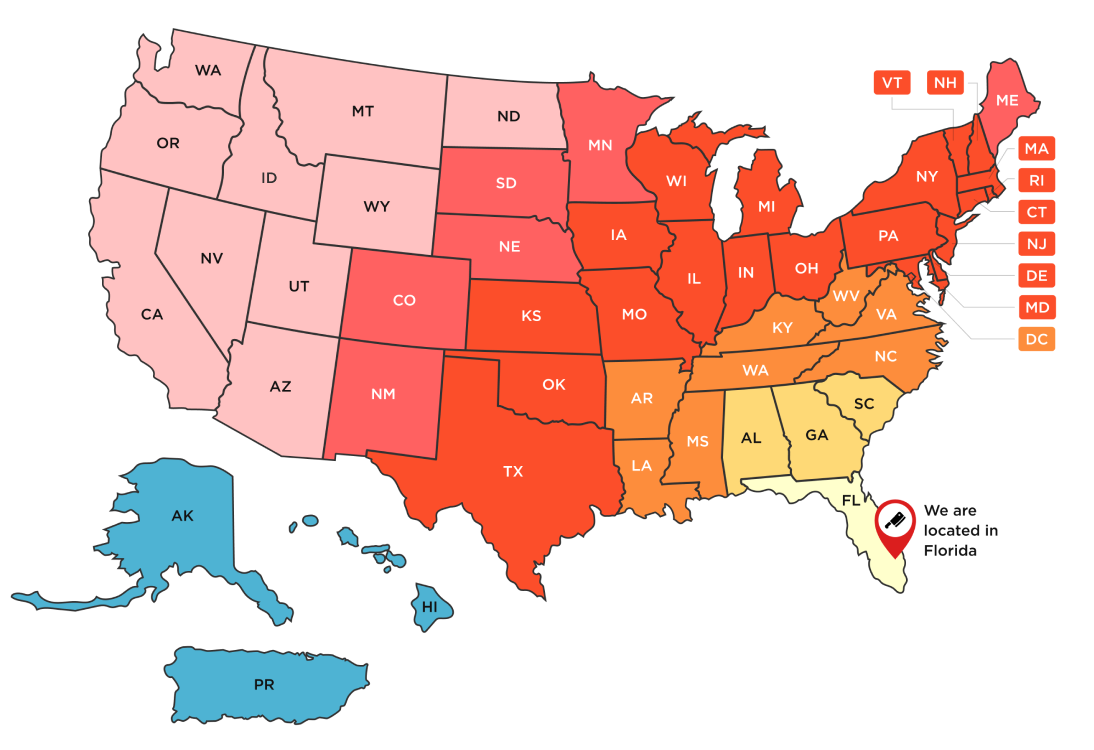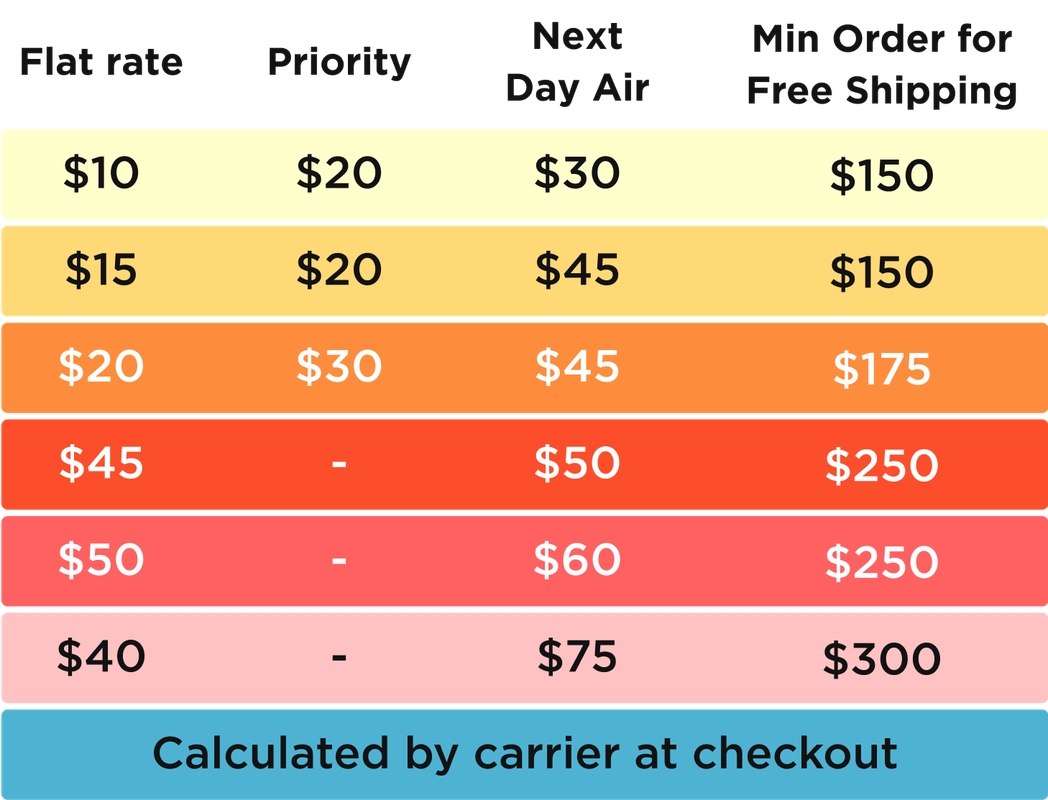
Why You Should Pay More For Quality Chicken
At Meat N' Bone, our job goes beyond selling proteins. Our model of customer service has our staff constantly engaging with chefs and people procuring ingredients for high-end kitchens.
Last week, a chef from a mega-yacht replied to my price list complaining about the price of our chicken. He said he could buy chicken from a broad-liner at half the price we sell chicken for. He went as far as accusing me of price-gauging. I patiently explained to him that we work exclusively with Bell & Evans because we believe in selling best-in class items and Bell & Evans is one of the few chicken brands that continually keeps raising the benchmark on the entire poultry industry. They produce an amazing product at a fair price. Yes, it is more expensive than your typical "commodity" chicken, but there is a reason for that.
The chef ended up buying a few pieces of chicken which he was going to try and compare versus what he gets from Sysco. I told him I would be seeing him in a week or so.
I do not get annoyed by these enquiries. I love them. A few years ago, I was that chef. I was the guy who though all chicken was just "chicken" and that chicken was supposed to be cheap.
Little did I know that the way I perceived buying chicken was the result of billions and billions of dollars from "Big Chicken". I have recently learned that most chicken that I see at the grocery store is indeed "too cheap" and like with almost everything in life, you cannot cheat price.
I also learned that as a result of the way we raise our chicken, US-raised chicken cannot be sold in most of Europe. Yes, really.
Is Chicken Too Cheap?
The New York Times recently ran a piece titled "The True Cost of Your Cheap Chicken." It is a tough watch and a tough read but it does talk about the realities of raising chicken in America. But, considering that we have had the highest inflation in the last 40 years, can anyone really say that chicken is too cheap?
If you walk into your nearest grocery store you will most likely be able to find a whole chicken for less than $5.
A whole chicken costs about the same as a can of red bull or a pint of beer.; products that most of us have no problem paying for (I'm drinking a 6 pack of craft beer I paid over $15 for while I write this blog post).
Chicken prices are indeed cheap, but this is a result of practices that have sacrificed everything, and I truly mean everything, to drive prices down.
Technology has helped, as well as genetics, but the story goes deeper. Much deeper. 'Big Chicken' has made chicken a commodity that is homogenous. It is really hard to differentiate one brand from another. Your "choice" at the supermarket is no more than pure deception. We're led to believe we have "lots" of options but the over 30 brands you will find at your local grocery store are made by the same 4 companies:

Who Runs "Big Chicken"?
Tyson, Perdue, Sanderson Farms and Pilgrim’s Pride control over 60% of the market and they have done so trough pricing and vertical integration. The companies own and operate all the means of production, including the feed mills, slaughterhouses, trucking lines and even the hatcheries that develop the best strains of chickens.

Farms are the only part of the market these big companies don’t own. Independent farmers borrow millions of dollars to build sophisticated warehouses, where they raise hundreds of thousands of chickens at a time. Crucially, though, they are not entirely independent. Farmers raise the birds under contract with an integrated company, giving firms strict control over operations. The poultry companies own the chickens, the feed, and even control the chickens’ medical care. All farmers can do is try to raise the birds as efficiently as possible, even though most of the business is out of their hands.
So farmers really cannot differentiate their chickens as they do not even get to choose what to feed their birds. They are stuck. They have one, maybe two buyers, for their product. These buyers sell them all their supplies and buy their chickens at a price they command. They pay the farmers just enough to stay afloat. At the end of the day, the consumer pays for it.
We wont even get into what workers at these farms are paid or the practices of the industry. Let's just say they are not good.
How Does This Affect Me As A Consumer?
We have already established that the "choice" of chicken you buy at the supermarket is just an illusion. There is no choice. You are buying from the same four companies. But if the product was good, I honestly would not care.
However, I do not know about you but I care about what I put in my body and even as an avid meat-eater I have the utmost respect for the animals that I eat.
The conditions that most chickens are raised are unlivable. We are talking warehouses where chickens are so cramped that they are on top of each other.
If you walk into one of these facilities (which, as you can see in the video, are heavily guarded) you will be hit by a wave of ammonia smell that will almost make you throw up.
These chickens, often labeled as "cage free", "all natural" and "organic," are literally living in feces and eat food that is mixed with feces. Conditions are so bad that farmers have to walk around their warehouse killing birds that look sick or picking up dead birds.
Eating these animals cannot be healthy. Moreover, we can do better.
As you can see, even marketing labels like 'organic' can be misleading. We delve deeper into this with our article, 'Is organic chicken worth it?'
How Much Should I Pay For Chicken?
If someone is selling you a chicken for $1/lb, how much do you think it cost them? Probably $0.60/lb? That covers the bird, inspection fees, packaging, as well as the space, feed, transportation, and margin for the producer. Then there's the actual margin for the retailer. If it sounds like very little, that's because it is.
Your typical chicken, as we explained, is raised in a high-density confinement facility, which endures overcrowding, poor sanitation, and lack of access to outdoor space. It is all about keeping costs down. Cheap birds that get fat quick, cheap feed, low labor costs, and maximum utilization space..
You should be paying between $4-$10/lb for chicken. Smaller programs that do not have access to economies of scale will be more expensive.
At Meat N' Bone we work with Bell & Evans because they are the best, semi-large scale commercial chicken supplier that is showing the rest of the industry that you can make money while making a good product and giving animals the respect they deserve.
You can taste the difference. Their chicken is juicier, full of flavor and moreover, Bell & Evans' chicken is air-chilled, like in Europe. Everything they do adds up to healthier, more flavorful birds. No antibiotics. No added water. No junk.
This is how a Bell & Evans facility looks. Can you spot the differences?
Now you know why you should pay more for quality chicken.
← Older Post Newer Post →








